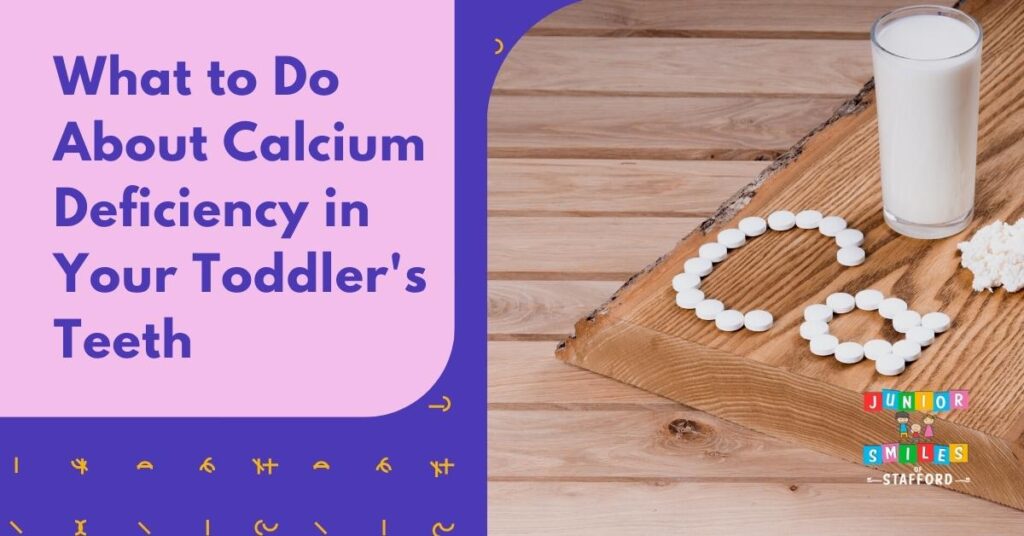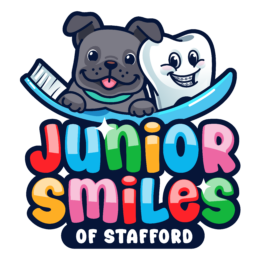What to Do About Calcium Deficiency in Your Toddler’s Teeth

Calcium is essential for your body because it helps control your overall health and keeps your bones, teeth, and jaw strong. There are a number of health conditions that can arise when you are lacking in calcium. These include an irregular heartbeat as well as nerve, muscle, and hormonal imbalances.
Calcium is essential for the development of healthy and strong bones. We’ve been bombarded with milk or dairy products advertising for years, which has firmly rooted that idea in our minds. One hundred and ninety-nine percent of the body’s calcium is utilized to develop strong bones and teeth.
Calcium is the mineral that makes bones hard, and it is also responsible for making the enamel that covers our teeth the toughest component in our bodies.
Children are surely tired of hearing their parents remind them to drink their source of calcium, milk, every day. Your child’s teeth and bones need to have the correct quantity of calcium at a young age. Encourage your child to get the recommended calcium intake per day to have healthy bones and teeth.
Importance Of Calcium For Kids
Calcium-rich foods, such as dairy products and leafy greens, contain other essential vitamins and minerals, including magnesium, vitamin D, protein, and phosphorous. Additionally, phosphorus can assist in protecting teeth against dental cavities, sensitivity, and other dental issues by strengthening the tooth enamel. Too much sugar and acidic meals can also erode the enamel on your teeth.
Dairy products and vegetables are the finest sources of calcium for children. Foods rich in calcium are as follows:
- Kale
- Broccoli
- Yogurt
- Milk
- Cheese
Proper calcium intake for children under eight should be at least two and a half cups per day. At least three cups of daily calcium intake for children and adults over 8. Dental problems might occur if your children aren’t getting enough amounts of calcium, which can also affect their growth and development.
Symptoms Of Calcium Deficiency
Because your body’s calcium balance is so precisely regulated, it might take years for signs of calcium deficiency to become apparent. To compensate for low blood calcium levels, the body may begin to remove calcium from bones and place it in muscles and other intracellular fluids. Bone and tooth deterioration may be one of the long-term effects.
Lack of calcium can weaken your bones, especially your teeth, making them more susceptible to fracture. You may be at risk of tooth loss as a result of this. Tooth loss was linked to insufficient calcium consumption in a study of 145 senior citizens.
In addition to tooth alterations, other signs of calcium insufficiency may appear. Calcium insufficiency can have various effects on the body, with the symptoms varying from person to person. Osteopenia, or a decrease in bone mineral density, can occur in those who are calcium deficient. It is possible to develop osteoporosis, characterized by weak, porous, fracture-prone bones if left untreated.
Other possible symptoms of calcium deficiency:
- Convulsions
- Muscle cramping
- Poor appetite
- Numbness and tingling in your fingertips
- Abnormal heartbeat
- Nail changes
- Extreme fatigue
Severe calcium deficiency can lead to more adverse health effects if not recognized and treated. Untreated calcium shortage can be lethal in extreme circumstances.
Signs Of Calcium Deficiency in Babies
The condition known as hypocalcemia is one in which the body’s calcium levels are abnormally low. The symptoms of hypocalcemia vary depending on how low the baby’s calcium is and how quickly the drop occurred.
Your child suffering from hypocalcemia may be irritable, vomit, appear weak or floppy, twitch, shake, or appear jittery, not feed properly, be lethargic, and have seizures.
Causes Of Hypocalcemia in Babies
The baby’s diet doesn’t have enough calcium. Babies fed homemade or watered-down formula may experience this side effect. Babies younger than a year old who consume cows, goats, or other types of milk may also experience this side effect. The safest options for babies are breast milk or commercial baby formula. Calcium and other minerals are present in the correct amounts in these formulas.
Vitamin D deficiency in the baby’s diet. Store-bought infant formula contains vitamin D, which aids the body’s absorption of calcium. Vitamin D supplements are necessary for breastfed babies.
Treating Hypocalcemia
Babies who show hypocalcemia will be given intravenous calcium to restore their calcium levels to normal. This can happen in the hospital, especially in the intensive care unit (ICU). In addition, doctors seek to address the underlying reason for the low calcium levels.
When running testing for other reasons, a modest case of hypocalcemia in a baby may be discovered. As long as the babies are getting adequate amounts of calcium and other minerals, this problem should go away on its own. As a drug that babies can ingest, doctors may occasionally prescribe calcium or vitamin D to infants.
Hypocalcemia cannot be prevented in all cases. However, ensuring that newborns receive the finest nutrition possible is essential for their long-term health. Breast milk and store-bought infant formula have the correct mix of vitamins and minerals for babies. Consult your child’s pediatrician if you have any concerns or questions about how to feed your child.
Read more: When Should a Child Brush Their Own Teeth?
Contact Junior Smiles of Stafford learn more about calcium deficiency and how it affects your child’s teeth
For more information on calcium deficiency and how it can impact your child’s teeth, please contact a reputable pediatric dentist as soon as possible. Our dentists at Junior Smiles of Stafford are experts in pediatric dental care and would be happy to answer any questions you may have about this condition.
Why Choose Junior Smiles of Stafford?
Our Stafford, VA team is well-versed in working with clients of various ages and backgrounds. They’ll take the time to get to know you and your family’s requirements, and they’ll work with you to design a treatment plan that suits your schedule. Sealants and fluoride treatments are just two of the many preventative care options we provide to keep your mouth healthy.
About Us
Visiting Junior Smiles of Stafford means you’re in good hands when it comes to receiving high-quality care. Your child’s dental health improves with each visit, ensuring a brighter smile for years to come. We adhere to the ADA and AAPD’s guidelines for best practices.
Where Are We Located?
Phone: (540) 699-2441
Fax: (540) 699-2464
Email: info@juniorsmilesofstafford.com
Monday and Tuesday: 9:00 AM – 5:00 PM
Wednesdays and Thursdays: 8:00 AM – 4:00 PM
Fridays and Saturdays: 9:00 AM – 2:00 PM (By appointment only)
How to Book Your Kids First Appointment at Junior Smiles of Stafford
Fill out the form on our website. Within 24 hours, a member of our team will get back to you.

